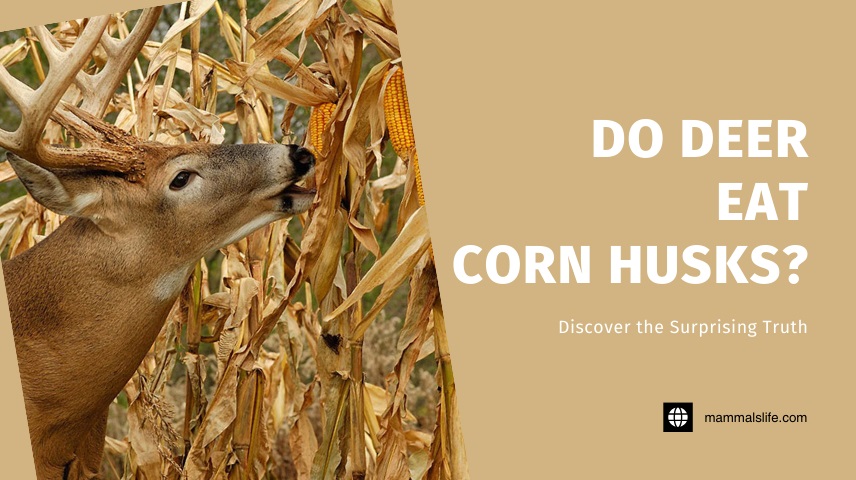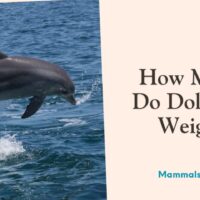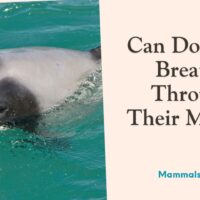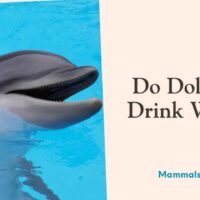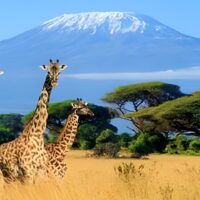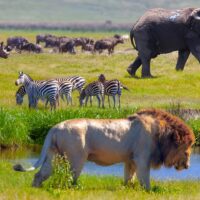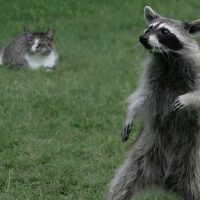Last Updated on February 22, 2025 by Mammals Life
Yes, deer eat corn husks. They find them tasty and nutritious, especially in the fall and winter.
Deer are known for their varied diet, which changes with the seasons. During autumn and winter, deer often seek out high-energy foods to sustain them through the colder months. Corn husks provide a good source of nutrition and are readily available in agricultural areas.
Many farmers notice deer nibbling on leftover corn husks in their fields. This behavior benefits deer, as they gain essential nutrients, and helps farmers by reducing crop waste. Understanding deer feeding habits can aid in managing wildlife and agricultural interactions effectively. Deer eating corn husks is a common sight, reflecting their adaptability and resourcefulness in finding food sources.
Deer Diet Basics
Deer are versatile eaters. Their diet includes various plants and parts. Understanding their diet helps us know if they eat corn husks.
Natural Food Sources
Deer eat a wide range of natural foods. Their diet mainly consists of:
- Grasses
- Leaves
- Twigs
- Fruits
- Nuts
They also enjoy wild berries and mushrooms. Deer often browse on shrubs and trees. They prefer tender and young plants.
Seasonal Diet Changes
Deer change their diet with the seasons. In spring and summer, they eat more green plants. Fresh leaves and herbs are their favorites.
In fall, they switch to fruits and nuts. They prepare for winter by eating acorns and other high-energy foods.
During winter, food is scarce. Deer eat twigs, bark, and evergreen plants. They may also eat agricultural leftovers like corn husks.
| Season | Common Foods |
|---|---|
| Spring | Fresh leaves, grasses, herbs |
| Summer | Green plants, berries, mushrooms |
| Fall | Fruits, nuts, acorns |
| Winter | Twigs, bark, evergreen plants |
Corn Husks: Nutritional Value
Deer often forage on a variety of plant materials, including corn husks. These husks are the leafy outer covering of corn ears. They are not only fibrous but also contain valuable nutrients that can benefit deer. Understanding the nutritional value of corn husks helps in knowing why deer eat them.
Components Of Corn Husks
Corn husks are primarily composed of fiber, making them a good source of roughage for deer. Below is a breakdown of the main components:
| Component | Description |
|---|---|
| Fiber | Helps in digestion and keeps the digestive system healthy. |
| Carbohydrates | Provides energy necessary for daily activities. |
| Proteins | Essential for growth and repair of body tissues. |
| Vitamins and Minerals | Includes small amounts of vitamins A and C, calcium, and potassium. |
Benefits For Deer
Eating corn husks provides several benefits for deer. Here are some key points:
- Improved Digestion: The high fiber content aids in better digestion.
- Energy Source: Carbohydrates in the husks provide a quick energy boost.
- Balanced Diet: Small amounts of proteins, vitamins, and minerals contribute to a balanced diet.
- Natural Foraging: Corn husks are a natural part of the deer’s diet, helping them thrive in the wild.
In summary, corn husks are a nutritious and beneficial food source for deer. They offer essential nutrients that support the deer’s overall health.
Do Deer Eat Corn Husks?
Many people wonder about the eating habits of deer. One common question is: Do deer eat corn husks? Understanding what deer eat helps in wildlife management. It also helps in gardening and agriculture.
Observations In The Wild
Wildlife experts have made several observations. Deer are often seen in cornfields. They eat corn kernels and sometimes nibble on the husks. Farmers often find half-eaten corn cobs left behind by deer.
| Food Item | Deer Preference |
|---|---|
| Corn Kernels | High |
| Corn Husks | Medium |
| Leaves | Low |
Scientific Studies
Scientists have conducted studies on deer diets. These studies show that deer prefer corn kernels. Yet, they do eat corn husks sometimes. This happens especially when other food sources are scarce. In some experiments, deer were given corn husks. They ate them but showed less enthusiasm than for corn kernels.
Researchers have also noted seasonal changes. During winter, deer eat more corn husks. This is because food is harder to find. In spring and summer, deer have more food choices. They eat more fresh plants and less corn husks.
- Deer prefer corn kernels over husks.
- They eat husks more in winter.
- Studies show seasonal changes in diet.
Attracting Deer With Corn Husks
Deer often roam through forests and fields in search of food. Corn husks can be a great way to attract them to your yard. This blog will explain the best strategies for feeding deer with corn husks.
Feeding Strategies
Use these strategies to attract deer effectively:
- Scatter the corn husks across a wide area.
- Place the husks near forest edges or clearings.
- Combine corn husks with other deer-friendly foods.
Ensure to maintain a steady supply of corn husks. This helps keep deer coming back regularly. You can also create a feeding schedule to monitor their visits.
Possible Risks
Feeding deer corn husks has some risks:
| Risk | Description |
|---|---|
| Overfeeding | Too many corn husks can cause digestive issues. |
| Wildlife Attraction | Other animals might be attracted to the food source. |
| Spread of Disease | Feeding areas can become breeding grounds for disease. |
To minimize these risks, feed deer in moderation. Always clean the feeding area regularly to prevent disease spread. Remember to monitor the health of the deer visiting your yard.
Alternative Food For Deer
Deer have a varied diet that changes with the seasons. While corn husks are a common food source, there are many alternatives.
Popular Choices
Deer enjoy many types of food. Here are some popular alternatives:
- Acorns: Rich in fats and proteins, acorns are a favorite.
- Fruits: Apples, berries, and persimmons are sweet treats.
- Leaves: Deer often eat leaves from various trees and shrubs.
- Nuts: Chestnuts and other nuts offer essential nutrients.
- Grasses: Many types of grasses are easy for deer to digest.
Comparative Nutritional Value
Different foods offer different nutritional benefits. Here is a comparison:
| Food Source | Calories | Proteins | Fats | Carbohydrates |
|---|---|---|---|---|
| Corn Husks | 80 | 2g | 1g | 18g |
| Acorns | 200 | 4g | 10g | 20g |
| Apples | 95 | 0.5g | 0.3g | 25g |
| Grasses | 50 | 1g | 0.5g | 10g |
Acorns provide more calories and fats, which are essential in cold weather. Apples are low in fats but high in carbohydrates, giving quick energy. Grasses are a good source of fiber and easy to find year-round.
Choosing the right food can help maintain a deer’s health. A varied diet ensures deer get all needed nutrients.
Ethical Considerations
Feeding deer corn husks might seem kind. But there are ethical considerations.
Impact On Natural Behavior
Feeding deer corn husks can change their natural behavior. Deer may start to rely on human food. This makes them less independent. Wild animals should find their own food.
Deer may stop foraging for natural plants. This disrupts the ecosystem. Other animals depend on these plants too. It’s important to let deer eat what they find naturally.
Feeding deer corn husks can also attract them to human areas. This can be dangerous for both deer and humans. Deer crossing roads can cause accidents. Keeping deer in the wild helps everyone stay safe.
Long-term Effects
Long-term feeding of corn husks can have bad effects. Deer might get used to this easy food source. They may forget how to find natural food. This can make them less healthy.
Corn husks do not provide all the nutrients deer need. Deer on a corn husk diet may become weak. Their immune system can suffer. This makes them more prone to diseases.
Table showing natural diet vs corn husks:
| Natural Diet | Corn Husks |
|---|---|
| Leaves, grass, fruits | Limited nutrients |
| Varied nutrients | High in carbohydrates |
| Promotes healthy foraging | Encourages dependency |
Feeding deer corn husks can also affect their population. More food can lead to more deer. This can strain the environment. There may not be enough natural food for all.
Deer populations can grow too large. This can lead to overgrazing. Plants and other animals suffer when this happens. Keeping deer populations in check helps the ecosystem stay balanced.
In short, feeding deer corn husks has many ethical concerns. It’s best to let nature take its course.
Frequently Asked Questions
Do Deer Eat Corn Husks?
Yes, deer do eat corn husks. They find them nutritious and tasty.
Are Corn Husks Safe For Deer?
Yes, corn husks are safe for deer. They provide a good source of fiber.
Do Deer Prefer Corn Over Corn Husks?
Deer generally prefer corn kernels over husks. Kernels are more nutritious and easier to digest.
How To Attract Deer With Corn Husks?
Place corn husks in your yard or feeding area. Deer will be attracted to the scent and taste.
Conclusion
Deer do eat corn husks, finding them both tasty and nutritious. These plant parts offer essential nutrients. Observing deer munching on corn husks can be a delight for nature lovers. Always ensure fresh and pesticide-free corn husks for a healthy wildlife diet.

